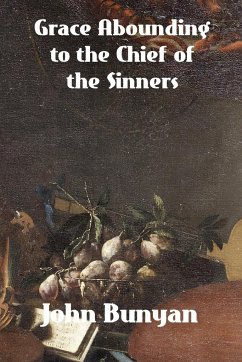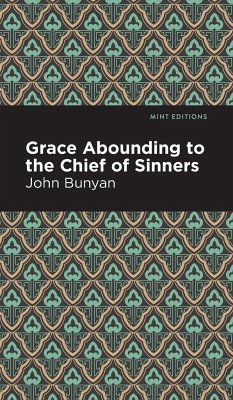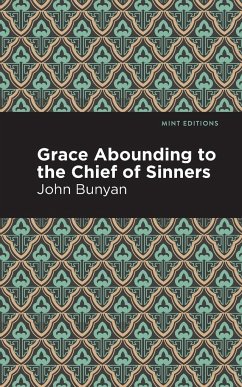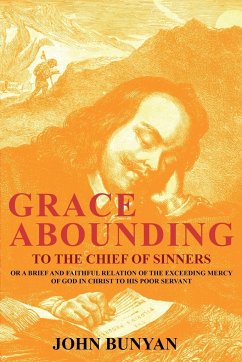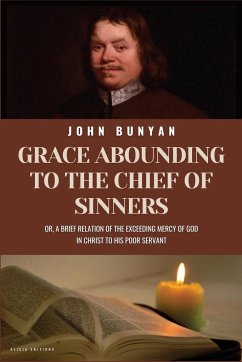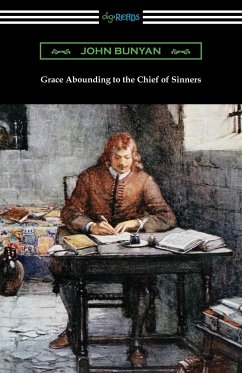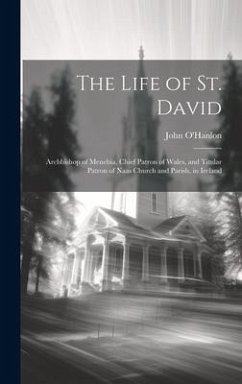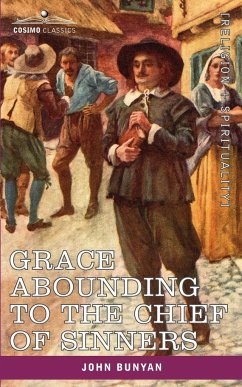
Grace Abounding to the Chief of Sinners
In a Faithful Account of the Life and Death of John Bunyan
Versandkostenfrei!
Versandfertig in 1-2 Wochen
24,99 €
inkl. MwSt.

PAYBACK Punkte
12 °P sammeln!
"Grace Abounding continues the tradition of Christian testimonial classics tracing back to the Confessions of Saint Augustine. John Bunyan¿s autobiography, written while he was imprisoned for holding unsanctioned religious services and first published in 1666, is the unsparing account of one man¿s spiritual journey from atheism and blasphemy to devout Christianity. A reckless and profane youth leads Bunyan to despair in the belief that he has committed unforgivable sins. But two religious books belonging to his wife set Bunyan on the straight and narrow and a lifetime of pious devotion. Hone...
"Grace Abounding continues the tradition of Christian testimonial classics tracing back to the Confessions of Saint Augustine. John Bunyan¿s autobiography, written while he was imprisoned for holding unsanctioned religious services and first published in 1666, is the unsparing account of one man¿s spiritual journey from atheism and blasphemy to devout Christianity. A reckless and profane youth leads Bunyan to despair in the belief that he has committed unforgivable sins. But two religious books belonging to his wife set Bunyan on the straight and narrow and a lifetime of pious devotion. Honest and unblinking in his self-assessment, Bunyan saw it as his duty to tell his story, warts and all, in order to comfort all those struggling with their faith. This classic of religious literature continues to be essential reading for the faithful and for students of great English literature. English preacher and writer JOHN BUNYAN (1628¿1688) is the author of nearly sixty books, nine of which were written while he was in prison for unlicensed preaching. His works include The Pilgrim¿s Progress (1678¿84), The Life and Death of Mr. Badman (1680), and The Holy War (1682)."



